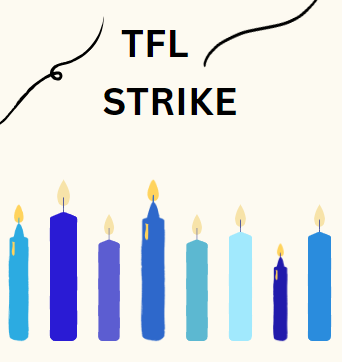The Impact and Causes of the TFL Strike
Transport for London (TfL) is the backbone of the UK’s capital city, moving millions of people daily across its intricate web of buses, trains, and underground services. However, when a TfL strike occurs, it can significantly disrupt the city’s functioning. The latest strike, a result of ongoing disputes between employees and management, has again highlighted the delicate balance needed to maintain this vast network. This article delves into the reasons behind the strike, its impact on the city, and potential solutions to prevent future disruptions.
Pension Concerns TfL strike
Another significant issue driving the strike is the proposed changes to pension schemes. TfL strike Employees are concerned about the future security of their pensions, with many fearing that reforms could diminish their retirement benefits. The pension dispute is particularly contentious, as it touches on long-term financial security, which is a sensitive topic for many workers approaching retirement age.
Read Also : Currys Black Friday
TfL strike Job Cuts and Overwork
has also been considering job cuts as part of cost-saving measures. This potential downsizing has caused anxiety among employees who are already facing high-pressure work environments. Moreover, those who remain could be required to work longer hours or take on additional responsibilities, further straining their work-life balance and overall well-being.The Immediate Impact of the TFL Strike
Disruption of Daily Commutes
The most immediate impact of the TfL strike is on the daily commute of millions of Londoners. With limited services running, commuters face long delays, crowded buses and trains, and even cancellations. For many, this has meant finding alternative routes to work, often resulting in extended travel times and increased stress.
TfL strike Economic Consequences
The TfL strike impact is not just limited to inconvenience. Businesses that rely on foot traffic, such as retail stores and restaurants, suffer as fewer people make their way into the city. The reduction in productivity due to employees being late or unable to work also has a knock-on effect on the economy, potentially leading to losses in the millions.
Strain on Alternative Transport Options
During a TfL strike, alternative transport options such as taxis, bicycles, and ride-sharing services like Uber experience a surge in demand. This increased demand can drive up prices, making these options unaffordable for some commuters. Moreover, the increased use of bicycles and scooters raises safety concerns, especially in a city not fully equipped for a sudden influx of cyclists.
The Broader Social Impact of TfL strike
Impact on Vulnerable Populations Strikes disproportionately affect vulnerable populations, including the elderly, people with disabilities, and low-income individuals who rely heavily on public transportation. TfL strike For these groups, the strike is more than an inconvenience; it can significantly limit their ability to access essential services like healthcare, education, and employment, exacerbating social inequalities.
TfL strike Increased Pollution
The TfL strike also has environmental implications. With more people resorting to private vehicles to navigate the city, there is an increase in carbon emissions and air pollution. This is particularly concerning for London, a city already grappling with air quality issues and the associated health risks.
Potential Solutions and Future Directions
Improving Dialogue Between Unions and Management To prevent future strikes, there needs to be improved dialogue between TfL strike management and unions. Both parties must come to the negotiating table willing to compromise and find mutually beneficial solutions. Regular discussions and consultations can help address grievances before they escalate into strikes.
Investment in Staff Welfare and Training
TfL strike could also invest more in the welfare and training of its staff. By improving working conditions, offering competitive pay, and providing opportunities for career advancement, TfL can foster a more motivated and satisfied workforce. Happy employees are less likely to strike, leading to a more stable and efficient transport network.
TfL strike Exploring Technological Solutions
Technology can play a crucial role in mitigating the impact of strikes. Implementing advanced communication systems can help provide real-time updates to commuters, allowing them to make informed decisions about their travel. Additionally, TfL strike could explore automated services and other technological innovations to reduce the reliance on human labor, though this must be balanced with the need to protect jobs and livelihoods.
TfL strike complex issue
The TfL strike is a complex issue with far-reaching consequences for London and its residents. While the immediate disruptions are evident, the underlying causes reveal deeper systemic issues that need addressing. By fostering better communication between management and employees, investing in workforce welfare, and leveraging technology, there is potential to minimize the impact of future strikes and ensure a more resilient public transport system. London’s public transport is a lifeline for many; safeguarding its functionality is crucial for the city’s social and economic health.
